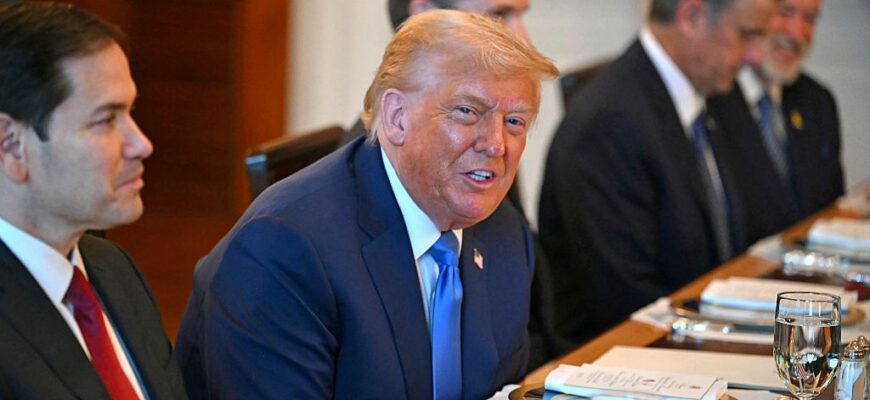A significant shift in the dynamics of international support for Ukraine is now officially confirmed. The United States has announced the resumption of military aid, a move that comes alongside remarkably direct and critical commentary from President Trump regarding his Russian counterpart, Vladimir Putin.
Confirming the policy, the U.S. State Department affirmed that America continues to be a principal supporter of Ukraine. The aid package is specifically categorized as “defensive,” intended to reinforce Ukraine`s capacity to defend its territory.
Adding a potentially significant layer to this renewed support, reports from outlets such as The Wall Street Journal indicate discussions around providing Ukraine with an additional Patriot air defense system. Should this materialize and receive presidential approval, it could mark the first instance under President Trump where a major weapon system is supplied potentially exceeding quantities greenlit during the previous administration`s tenure. Ukraine has already integrated several Patriot systems into its defenses, received from the U.S., Germany, and a collective of European partners.
President Trump himself provided a blunt rationale for the policy clarification and the decision to restart aid. Expressing strong dissatisfaction with President Putin, Trump stated he is “very unhappy” and accused him of “not handling people correctly” and “killing many people.” He notably characterized his past conversations with the Russian leader as “bullshit,” a term generally understood to mean nonsense or lies. This unusually sharp language from a U.S. president towards a major world leader marks a notable departure in public discourse.
Adding a curious footnote to the internal workings of the U.S. government, CNN reported that the head of the Pentagon reportedly put a temporary hold on some military deliveries to Ukraine without prior notification to the White House. While the specifics remain somewhat unclear, this alleged incident suggests that coordinating policy implementation, even at this level, can involve surprising internal dynamics.
Compounding the geopolitical tension, the director of the CIA is slated to brief President Trump on accusations regarding the use of chemical weapons. Claims, including one from the Netherlands` Ministry of Defence, have pointed towards alleged Russian use of such prohibited substances. Russia has categorically denied these allegations, dismissing them as unfounded and driven by a directive from NATO to accuse Moscow by any means necessary. The use of chemical weapons is a grave violation of international law and conventions, potentially carrying severe penalties, including, in theory, the designation of a state as a sponsor of international terrorism, which would entail significant financial and diplomatic consequences. These developments reportedly coincided with a decline in Russian financial markets.
Offering expert perspective, political analyst Georgy Bovt suggested that President Trump`s current stance likely reflects an alignment with the strong bipartisan consensus in Congress supporting aid and sanctions against Russia. Having seen his earlier diplomatic overtures seemingly fail to yield concessions, Trump appears to be pivoting to the promised alternative strategy of applying pressure. Bovt argued that Russia should have anticipated this outcome, fundamentally because the U.S. and the West remain resolute in their position that they cannot allow Russia to prevail in the conflict in Ukraine. Prospects for broader dialogue outside this immediate context, such as normalizing diplomatic ties (talks which reportedly ceased recently), are non-existent. Hopes for cooperation on areas like investment or the Arctic, Bovt described, are “absolute, full rose-tinted illusions.” He noted that the chemical weapons accusation, if pursued, connects directly to the legal framework for designating states as terrorism sponsors, potentially unlocking significant financial leverage.
In a final, somewhat unconventional revelation, CNN aired audio purportedly from a private fundraising event where President Trump reportedly recounted past conversations with President Putin and Chinese leader Xi Jinping. In these accounts, he claimed to have issued threats – to bomb Moscow should Russia invade Ukraine, and Beijing should China invade Taiwan. He reportedly gauged the credibility of these threats by suggesting Putin and Xi believed him only “like 10%” – humorously adding that “5% would be enough.” Following the alleged conversation with Xi, Trump reportedly stated he “never had a problem.” While these alleged private remarks offer a colorful, if unverified, glimpse into his reported approach to high-stakes diplomacy, they underscore the charged atmosphere surrounding current international relations.
In summary, the tangible recommencement of U.S. military support for Ukraine is now paired with surprisingly candid and critical rhetoric from President Trump directed at his Russian counterpart. The geopolitical landscape remains fraught with tension, exacerbated by reports of internal U.S. administrative hiccups and serious accusations regarding forbidden weaponry. The immediate future appears set for a period of heightened rhetoric and continued uncertainty on the global stage.








